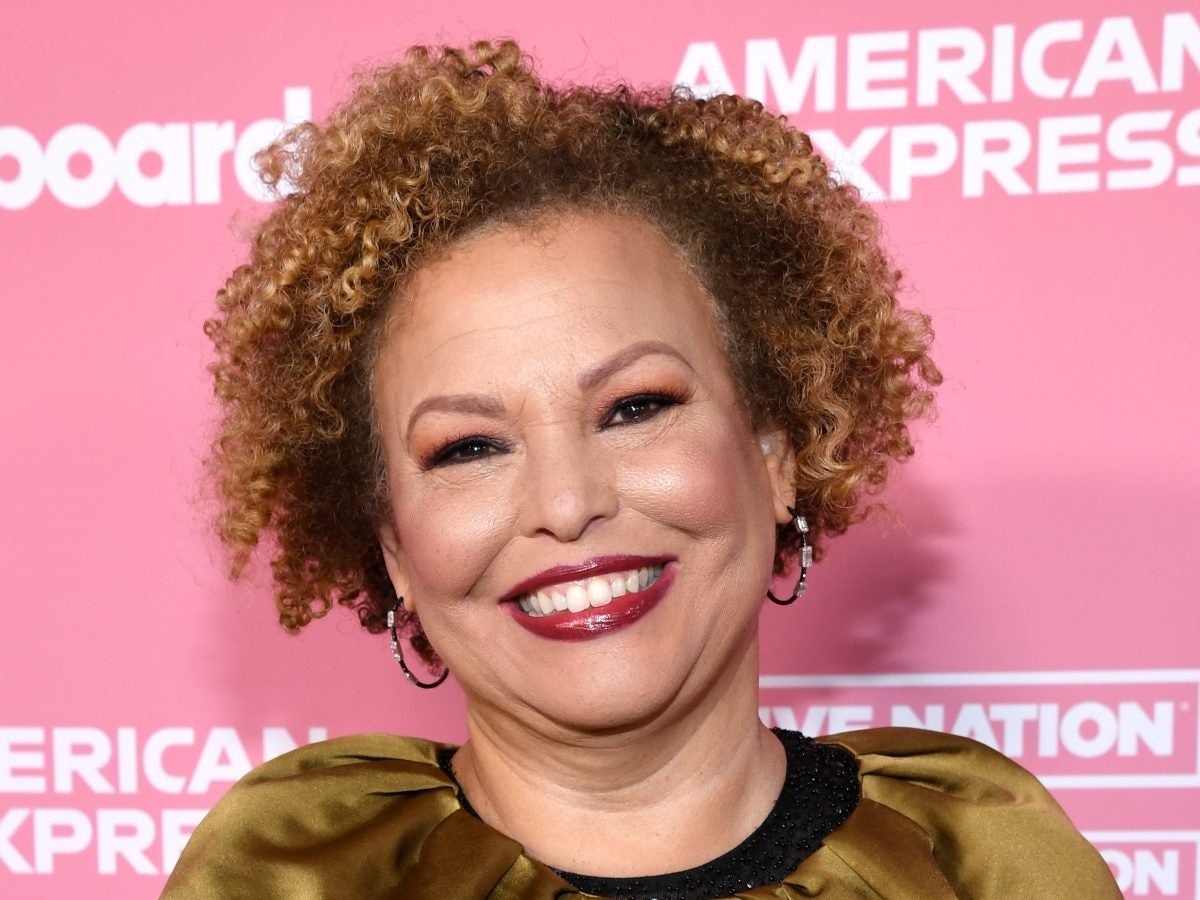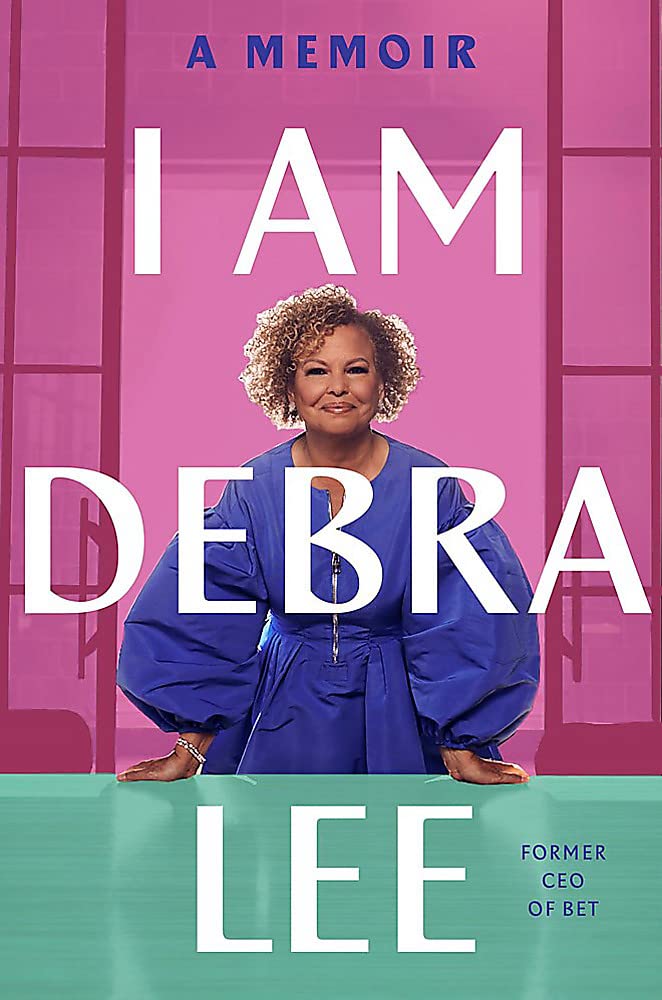
Debra Lee is a trailblazer, a glass ceiling-obliterator and a culture-creator. The former Chairman and CEO of BET Networks is a Black woman for whom Blackness is a driving force—it is her soul, she says.
“My Blackness has always been a part of me,” asserts Lee as she smiles from across the screen during a virtual interview.
Lee was born the same year the Supreme Court ruled that “separate is not equal” in Brown v. Board of Education. The exec was a “military brat” who grew up in the segregated South. As such, her generation felt a particular obligation to challenge the status quo, she says. “We felt like we had a lot of burden on our shoulders to help make the community better. And I never knew I was going to find a place like BET, but when I did, it was a perfect fit.”

A Harvard Law School graduate, Debra Lee left a big-time law firm to start working at a nascent BET—essentially, a start-up—as general counsel. She began in 1986, making an annual salary of $50,000 taking a substantial $18,000 pay cut. BET’s founder, Robert L. Johnson, assured Lee that she’d make back the differential between the two salaries over the years. He was correct.
During her tenure at BET, Lee attained countless major successes. Notably, she was the driving force behind BET going public in 1991 (BET Holdings was the first Black company traded on the New York Stock Exchange) and went on to become the company’s COO and CEO. In 2018, after a 32-year run at the network, 13 of those years serving as CEO, the attorney and businesswoman decided to cede the throne to the Black media juggernaut. It was time to step down. Today, Lee is sharing the story behind her journey with the world.
“I wanted to tell my story because there are so few Black female CEOs out there,” she explains. “I want other people to have my advice and my warning signs.”
I am Debra Lee is as much a self-help book as it is a personal account of the executive’s most intimate moments. In the 256-paged text, Lee chronicles her marriages, divorces and boardroom battles, among other moments dating back to her childhood. She brings an impressive level of vulnerability, laying it all on the paper.
“Choice is a privilege. From the really big things, like what women are allowed to do with their bodies, to the seemingly small moments, like how we style our hair, the ability to decide whether to turn right or left is a freedom too many of us take for granted,” the author reflects in her book, channelling her 21-year-old self to address the issue of abortion.
As a recent graduate of Brown University, Lee got pregnant—she called to tell her love interest that she was with child and he hung up. Lee subsequently made the decision to terminate her pregnancy. This was in 1976, three years after Roe. v. Wade decriminalized abortion.
“I had never spoken about it before,” Lee says. “I had the freedom to say, ‘Do I want to be a mother, or do I want to have an abortion?’ And I decided I wanted to go to Harvard Law School and it was not the time for me to have a child.”
Lee got pregnant only months before law school began and she didn’t have much time to make the choice. “It was such a quick decision. And after it happened and I had the abortion, I had to get back into getting ready for law school. I didn’t have time to regret it. I didn’t have time to mourn. I just had to say, ‘I’m going on with my life. I made this decision and it’s behind me now.’ And that was tough. It was really tough.”
Upon reading the book, one will notice that Lee has faced a tremendous bit of adversity, personally and professionally, on her path to the throne at BET. What is particularly impressive is Lee’s ability to find her voice and overcome these difficult moments.
In the book she discusses working with powerful men and learning how to navigate an unequal power dynamic. She also addresses rumors of infidelity, and the realization that she was manipulated into a romantic relationship with her boss Robert Johnson. As CEO, Johnson asserted his power to dictate her schedule, private meetings and even the proximity of their hotel rooms during business trips. In her memoir, Lee writes their relationship “Went from platonic to intimate to toxic and even abusive.”
“I never thought it would turn into something other than a professional relationship,” she tells ESSENCE. “And then when it did I had to deal with it. And then when it wasn’t working anymore, I had to deal with that, too.”
The retired executive is a wise woman and a straight shooter, still she emanates a warmth that skews away from the archetypical businessperson persona. In our virtual meeting room, Lee speaks frankly of her life and experiences: “The challenges, the successes, the highs and lows,” as she describes it. Lee, who is very much a rock in her circles, is human—sometimes she needs support. “And it’s not to say I don’t fall apart at times and go through dark moments. I started therapy years ago because I was at one point in my life where I really needed it. I mean, I still need it. And it’s important to have people, you can talk to, people that are strong for you, but when you’re the one in your family that’s successful and that others depend on, whether it’s your children or your siblings or your parents you know, don’t have time to fall apart a lot.”
“Life is not easy.” Lee continues, “It’s just not easy.”
In 2020 Lee faced her greatest loss when her eldest child, Quinn Coleman passed away. The mom of two is a woman of tremendous strength. With grace and fortitude she goes forward with life. Lee became deeply reflective.
“I talk in the epilogue about the death of my son, which is by far, the hardest thing I’ve ever been through in life. And it’s not something that I’ll ever get over. I won’t,” she says. It’s hard every day. And I miss him every day. And that happened while I was writing this book. So I still have not totally gotten to the point where I can talk about it, but you never know what’s going to come up next.”